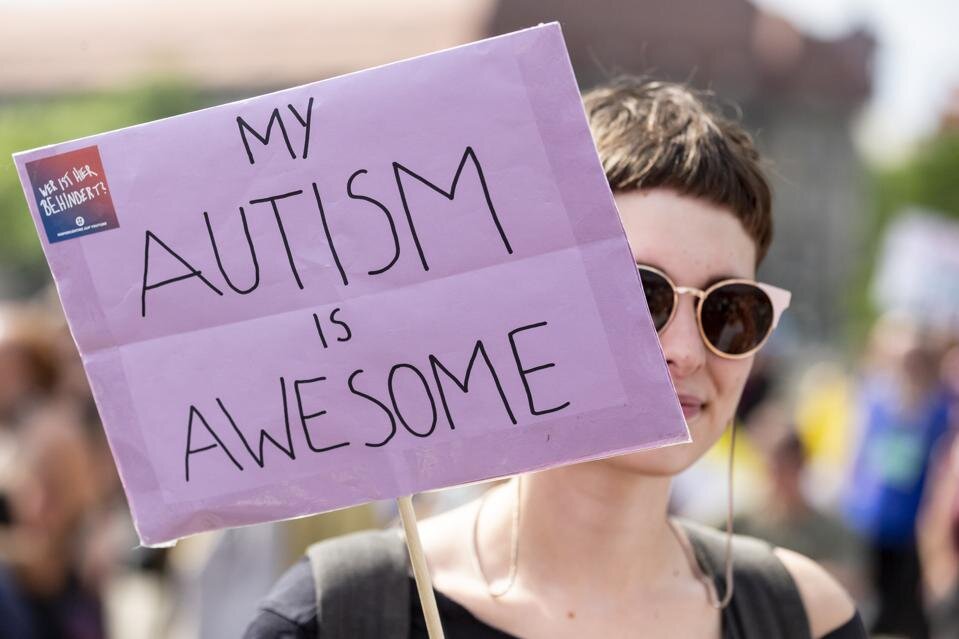Autism Acceptance Not Awareness: A Perspective Shift Is Needed
Unlike some other awareness campaigns Autism Awareness month is not universally liked by the Autistic community. If you follow the #ActuallyAutistic hashtag on social media, or any of the prominent advocates, you will most likely encounter posts throughout the month of April on this subject. I encourage you to read it direct from the source and learn the history that has created so much friction around this annual event.
A large part of the problem is that awareness has not proven effective at improving the lives of Autistic people. In fact, these awareness drives often lead to the widespread dissemination of misinformation and outdated perspectives, causing further difficulties for people in the community. With no one ensuring the accuracy of the content that gets shared we frequently see harmful myths getting more traction than the truth, and non-autistic voices speaking over Autistic ones.
I’ve watched the April Autism season unfold with a flurry of talks, webinars, articles and social media. I’ve kept relatively quiet, listening to voices in the Autism community and considering how best to amplify the sentiments in my writing. Here’s my advice.
Not A Mystery To Be Solved
The most radical act you can perform as an ally to Autistic people is to accept them exactly as they are and beyond that to celebrate them and their neurotype.
Whilst co-occurring conditions, a spiky profile and the social model of disability may create struggles in their life, most Autistic people are not looking to be “fixed”. In fact, there is even an Autism Pride day (June 18th) so that Autists can have a day to celebrate their identities independent of the infantilising memes and online harassment that sadly come their way during April.
The concept of Autistic pride can seem strange to those who only understand Autism through the lens of the mainstream media. The dominant narratives in this sphere tend to be the socially isolated white male and the struggling parents trying to raise a child who is different to the other kids.
Whilst it is sadly true that parents struggle and Autists often do experience social rejection from their neurotypical peers, the perspective in which these things are the fault of Autism itself is loaded with ableism and fails to reflect on the society that is exacerbating these problems rather than supporting inclusion, understanding and acceptance.
The deficit model is dominant and pathologizes neurodivergent identities so that they are understood by the general public as an illness to be cured rather than a different but entirely valid way of being. Many of the difficulties that Autistic children and adults deal with would be drastically reduced if people around them simply understood their different neurobiology and accommodated it. The knowledge is readily available and yet we continue to try and “convert” them to bring their behavior in line with what most perceive as the norm despite the trauma this approach causes.
This is one of many reasons that the puzzle piece symbol has been widely rejected and replaced with the infinity symbol. It suggests both that something is missing and that Autistic people are a mystery.
Autistic Pride
Let’s consider then a different world, one in which all neurotypes are celebrated for the rich diversity they contribute, just as we do with unusual hair or eye color, specific skills and traits in athleticism, art and variety of personality for example. The world would be dull if we were all the same.
In this world we would respect all forms of communication such as gesture, behavior, sign language and AAC devices. In this world a non-speaking child is simply someone who uses a different language to those that prefer speech.
In this new world we have shed our judgements about tone and body language so that people who are direct and factual are taken at face value and those that don’t make eye contact are not criminalized simply for protecting themselves.
How about a world where Autistic stimming is considered no different from nervously tapping your pen or doing a little clap when you are excited? Or where lining things up into perfect rows is admired as creative play in the same way as the child drawing their family.
If we could create this level of inclusion and acceptance so many of the problems that Autistic people and their families face would be removed.
Permission To Thrive
Here's some links to autistic people presenting their experiences and the very real issues they are facing in work, education, diagnosis and the criminal justice system, which I hope will provide broader overview than the typical puzzle pieces and calls for sympathy that we neurominorities can find patronizing.
The world is ready for more practical advice, actual steps that can be taken to improve the lives of Autistic people. As a closely related ADHD cousin to the Autistic community and an ally to all neurotypes, my sentiment converges here. We are interested in change, not awareness. Knowledge about genetic phenotypes and prevalence rates are less helpful than ideas for improvements to the school day, the working environment, policing, the intensity of information overload expected in everyday modern living.
Autism cannot be separated from the Autist, it is a major part of a person’s identity and treating it like a problem to be solved is demeaning. Awareness is not enough and acceptance is the conversation we need to be having.


